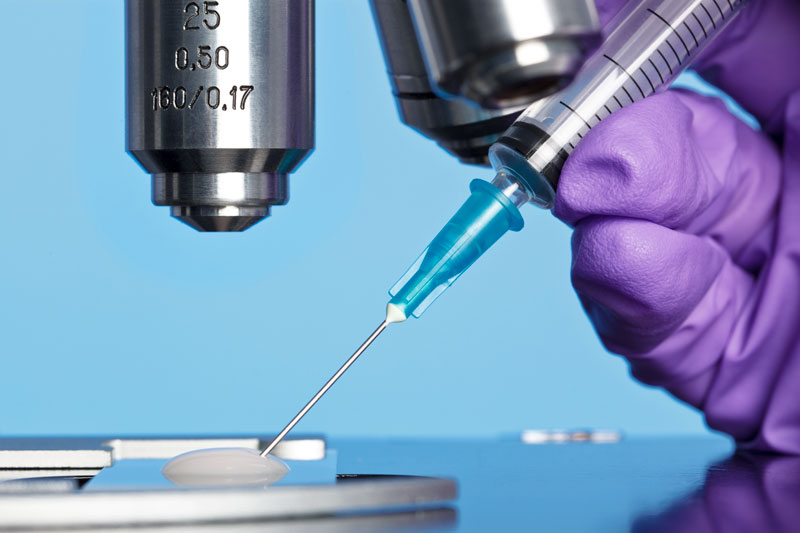PREIMPLANTATION EMBRYO SCREENING
Preimplantation Genetic Diagnosis (PGD) and Preimplantation Genetic Screening (PGS) refer to a biopsy of one of the embryonic cells. This allows the embryos to be screened prior to embryo transfer for abnormalities in the number or structure of their chromosomes, such as Down Syndrome, as well as for the control of specific gene diseases, e.g. thalassemia, cystic fibrosis, muscle dystrophy, etc.
Screening is performed using specific laboratory techniques (FISH, PCR) and is performed when the embryo is either at day 3 of development (8-cell stage), after which a cell is removed, or at day 5 of development (blastocyst stage), when the embryo has hundreds of cells and 4-5 are removed.
Since blastomere removal is done by a proper technique and by a qualified and experienced embryologist, it does not appear to affect the chances of survival of the fetus, nor the likelihood of implantation and achievement of clinical pregnancy. Regarding the health of children born after preimplantation genetic diagnosis, more than 100,000 cases have been studied and the rate of congenital abnormalities is the same as in children born with IVF without preimplantation genetic diagnosis.
It is clear that this procedure is not a routine check in every IVF cycle.
In addition, it cannot control all possible genetic diseases. Embryo biopsy is recommended when:
-Both parents are carriers of a specific known pathological gene, e.g. beta thalassemia, cystic fibrosis etc., and we want to exclude the presence of the disease in the fetus
-There is a pathological karyotype in one of the two parents, e.g. Turner mosaic
-There is a sibling with a specific chromosomal or genetic abnormality
-Gender selection should be made in the presence of a sex-linked disease gene, e.g. fragile Y chromosome, hemophilia etc.
With the continuous development of genetics and embryology, it is very likely in the near future that the Preimplantation Genetic Diagnosis be used in most IVF cycles, giving answers in cases of repeated failed attempts and allowing better and safer choice of healthy embryos for transfer.






